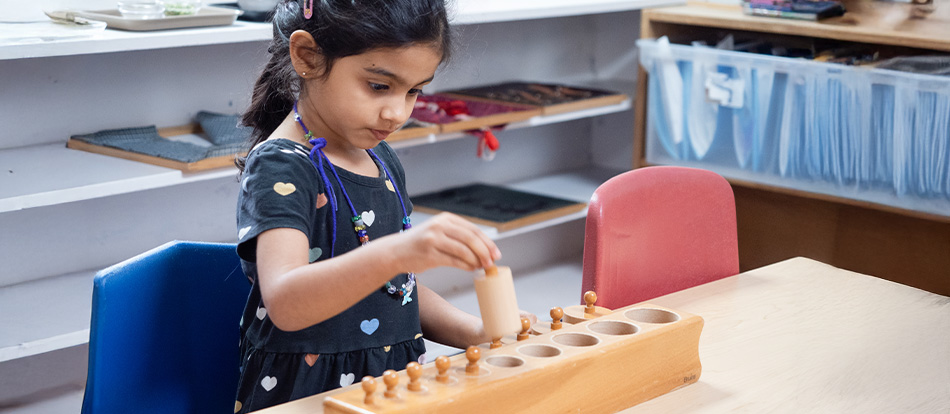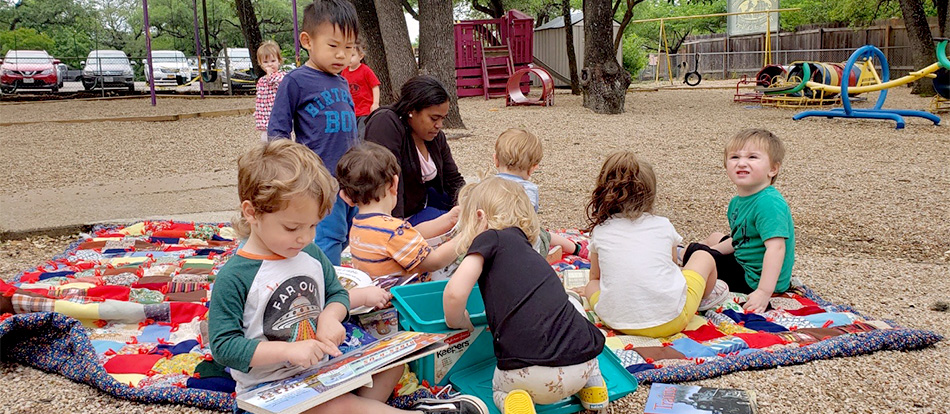Consistency, Routine, and Immersion Drive Child Development
Many parents ask, “Why do Montessori schools emphasize five-day-a-week attendance?” This structure is more than just childcare—it’s a cornerstone of the Montessori philosophy, fostering consistency, deep learning, and a sense of community. At International Montessori, our full-week programs maximize children’s growth by aligning with their developmental needs. This article explores why five-day schedules are standard, their benefits, part-time trade-offs, and how parents can support their child’s Montessori experience.

Why Five Days? The Montessori Philosophy
Montessori education prioritizes consistency, independence, and self-directed learning. Daily attendance supports:
Uninterrupted Work Cycles: Extended periods of focused, hands-on exploration are a central component of the Montessori approach. Daily presence ensures children fully engage with materials and maintain learning momentum, which is especially important in areas like Montessori math.
Emotional Security: A predictable routine builds trust with teachers and peers, reducing anxiety and fostering confidence. This is especially true during sensitive periods, when consistent exposure to the environment supports optimal development.
Community Building: Consistent attendance strengthens social bonds in mixed-age classrooms, encouraging empathy, cooperation, and conflict resolution through Montessori’s grace and courtesy lessons.
Skill Development: Regular exposure to lessons, especially in practical life activities, reinforces concepts and builds independence and self-discipline.

Benefits of a Five-Day Montessori Schedule
Predictable Routine: Daily attendance establishes a reliable rhythm, helping children feel secure and ready to learn.
More substantial Academic Progress: Frequent engagement with materials deepens understanding and enhances skill mastery, particularly in subjects that require hands-on practice.
Enhanced Social Growth: Daily peer interactions build lasting friendships and teach essential social skills that are nurtured through experiences like show and tell.
Deeper Engagement: Fewer absences mean less time readjusting, allowing children to dive into meaningful work and sustain concentration.
Independence and Responsibility: Consistent routines help reinforce habits such as self-direction and care for the classroom environment—habits that extend beyond school and can be supported in your own home.

Part-Time vs. Full-Week: Key Considerations
While part-time attendance may suit some families, it has limitations:
Learning Continuity: Part-time schedules can disrupt progress, as children miss lessons or activities, slowing academic and skill development.
Social Connections: Less frequent attendance may limit participation in group activities and weaken peer relationships, particularly in classrooms built around multi-age collaboration.
Emotional Stability: Inconsistent routines can make it harder for children to feel settled in the classroom.
Logistics and Cost: Full-week programs require more time and financial investment, but the developmental benefits often outweigh these challenges for many families.

Common Questions Answered
Will a five-day schedule be too much for my child?
Montessori classrooms balance active learning with rest, including nap or quiet time for younger children. Most adapt quickly, especially with a gradual transition supported by our teachers at International Montessori.
Is part-time Montessori effective?
Part-time programs offer benefits but may not deliver the full impact of Montessori’s immersive routine. Children attending part-time might miss community activities and classroom rituals that build confidence and language development.
How do I choose the right program?
Explore our Programs page at International Montessori or contact our staff to discuss attendance policies. Observe a classroom to see the daily rhythm in action. Ask how we support children transitioning to five-day schedules and how we align with your child’s sensitive periods—key developmental windows when consistency matters most.

Tips for Parents
Review the Schedule: Ensure the school’s daily routine strikes a balance between learning and rest. At International Montessori, our schedules are designed with your child’s needs in mind.
Check Teacher Consistency: Long-term teacher-child relationships foster a sense of security. Ask about our staff and classroom leadership.
Ease into Full-Time: If five days feels daunting, start with half days or a phased transition, guided by our team.Reinforce at Home: Establish consistent routines at home that mirror Montessori principles, such as setting aside designated times for independent tasks or practical life skills.
Conclusion
At International Montessori, our five-day-a-week programs are intentionally designed to support consistency, community, and deep learning. Full-week attendance helps children build momentum, form strong relationships, and thrive in a nurturing environment. While part-time options can work, the five-day model offers the richest Montessori experience. Explore how our schedule aligns with your child’s needs and partner with us to foster their growth. For more insights, visit the International Montessori blog, which features articles on child development and Montessori education.


